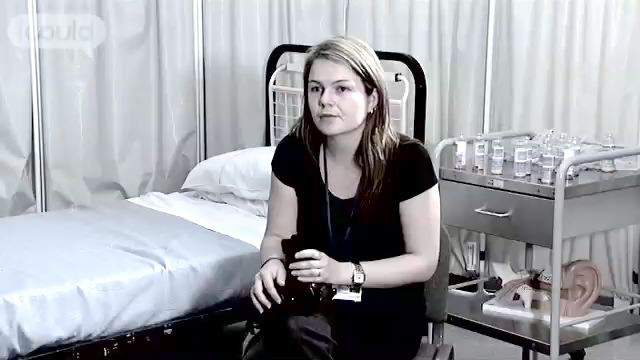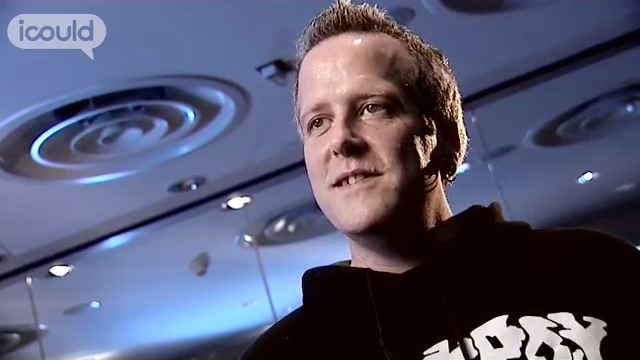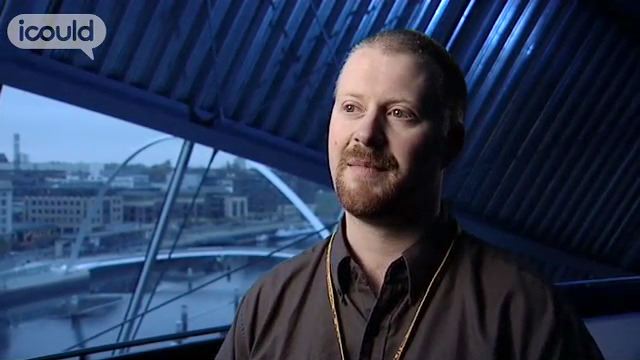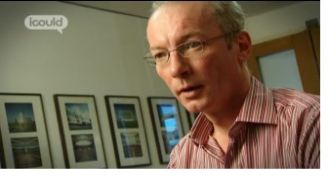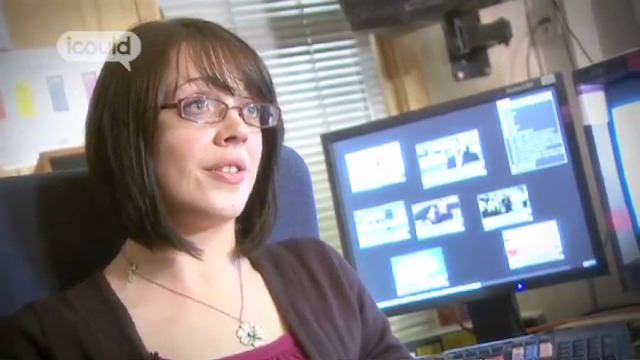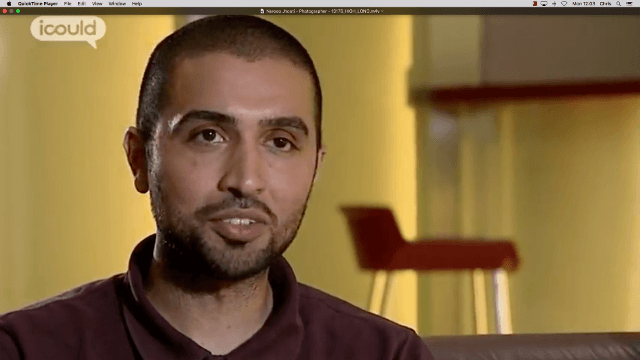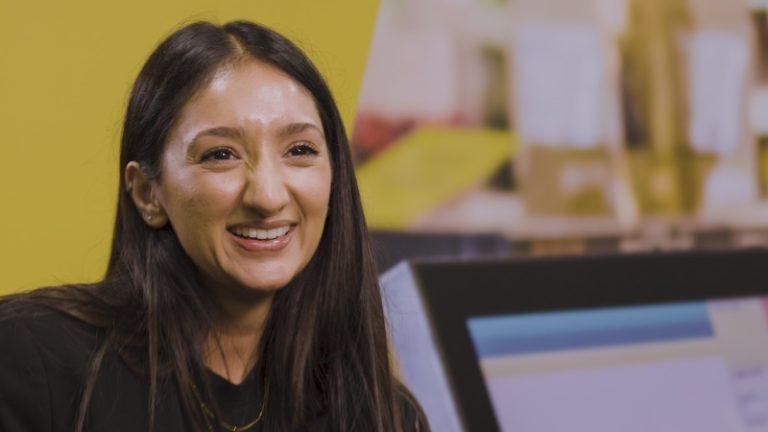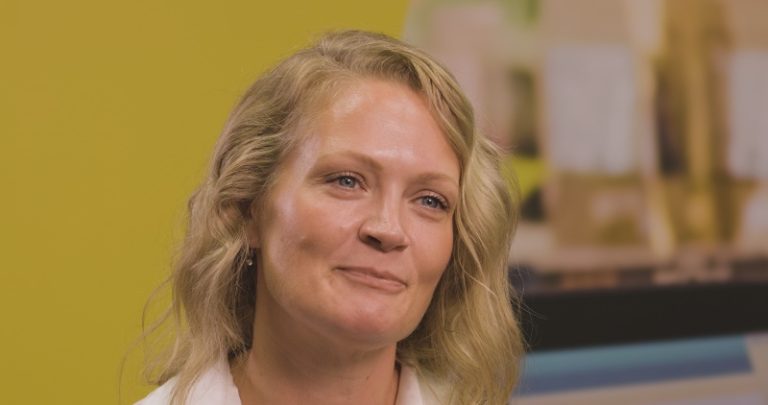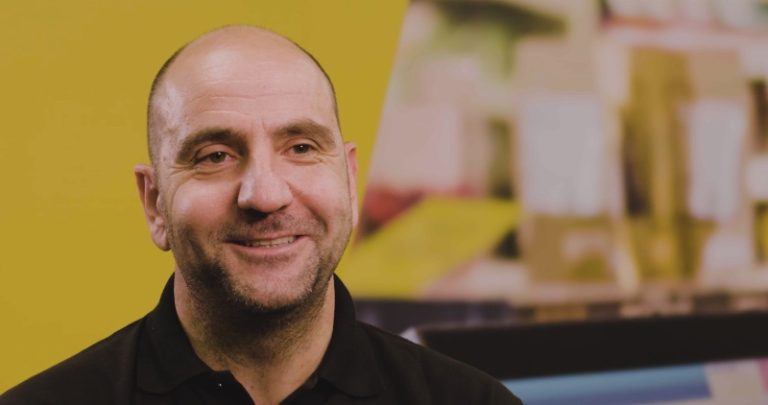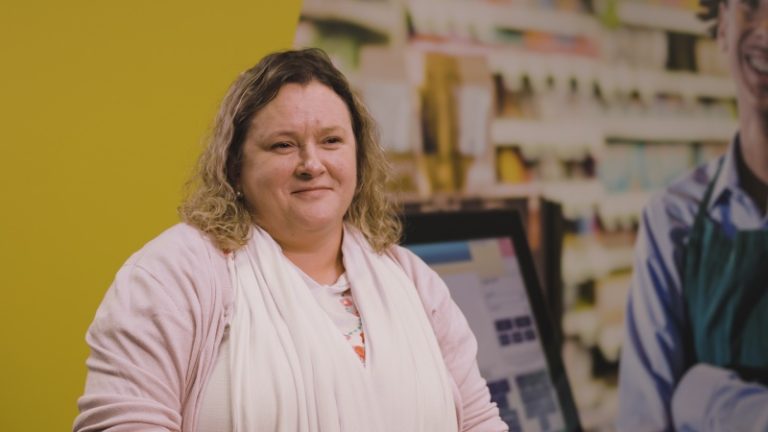Senior Medical Photographer
Addenbrookes Hospital
Jaclyn M
00:00:01 I’m Jaclyn M and I’m a Senior Medical Photographer here at Addenbrookes. We photograph patients who come along. It can be before and after surgery, a lot of stuff from A & E, a lot of stuff from plastic surgery. We also do a lot of PR photography as well, so we can go out and do some really nice pictures of the site, you know, we can do exciting stuff as well as gory stuff.
00:00:27 I’ve always been quite artistic throughout my whole life, and at school I was always encouraged to do Art. I think I thought I was going to be an artist or something, or a Graphic Designer or something like that. I then wanted to go to Glasgow Art School, and I wanted to do Fine Art there. I didn’t get in, and they suggested I did a portfolio year. So that’s basically why I did an HNC in Art and Design. Then I applied to do Illustration, didn’t get in to Glasgow Art School again, and I was, you know, really upset, ’cause I really really just wanted to go there. Because I got knocked back twice, it really did blow my confidence and I was like you know thinking well, I can’t get in to a University, I can’t get in anywhere.
00:01:10 It definitely set me back quite a bit, not getting in there, but I had also – I was also more prepared this time, and I got accepted to two other places. When I went to the University to talk to them about doing an Illustration type degree, they suggested to me why don’t you do Medical Illustration? I thought well, yeah, that sounds really interesting. I started doing it and they also trained me in Photography, and Illustration, and Video, and Photoshop. And I decided I really enjoyed it and seen it right through to the end and started working in Medical illustration.
00:01:46 One of the reasons I nearly didn’t – didn’t start doing this course was because at school I hadn’t done any Biology, or any Chemistry, and I didn’t have any background in any of that. You know, I thought well, they won’t let me go on the course. But they said Oh don’t worry, that’s not a problem, you’ll learn everything you need to know on the course. In the final year we had Pathology, which is the study of diseases, which is so interesting, but really quite difficult. I think Biology would help, but it’s definitely not something you need to have, because obviously I didn’t.
00:02:22 All of the Photographers in the department were all doing a little bit of video work, and a little bit of video editing. And then the video work started increasing and people where finding like you can do patient information DVDs. Projects were getting thrown at us and there was no point of contact in the department to do video work, and my boss created a Video Producer role. And I got promoted into that a couple of months ago, at the beginning of the year. It’s something that I was burning to do, I really wanted to move on a bit, and I wanted to – I wanted to be – have a bit more responsibility. I really felt it was the time, and I then got given a whole lot of responsibility which I’m really enjoying.
00:03:08 ENDS
As senior medical photographer at Addenbrookes hospital, Jaclyn takes shots of gory wounds and more gentle PR images, whilst in her video producer role she is increasingly producing patient information DVD’s. Artistic at school, Jacyln’s confidence took a knock when she did not get her place at Glasgow Art School. Perseverance, and good careers advice at University, led her to medical illustration (no science necessary).
More information about Photographers, audio-visual and broadcasting equipment operators
The UK average salary is £29,813
There are 37.5 hours in the average working week
The UK workforce is 47% female and 53% male
Future employment
- Selects subject and conceives composition of picture or discusses composition with colleagues
- Arranges subject, lighting, camera equipment and any microphones
- Inserts lenses and adjusts aperture and speed settings as necessary
- Operates scanning equipment to transfer image to computer and manipulates image to achieve the desired effect
- Photographs subject or follows action by moving camera
- Takes, records and manipulates digital images and digital video footage
- Controls transmission, broadcasting and satellite systems for television and radio programmes, identifies and solves related technical problems
- Checks operation and positioning of projectors, vision and sound recording equipment, and mixing and dubbing equipment
- Operates equipment to record, edit and play back films and television programmes
- Manages health and safety issues
- Operates sound mixing and dubbing equipment to obtain desired mix, level and balance of sound
- Maintains, repairs, programs and operates unmanned aircraft to provide aerial photographs and video
